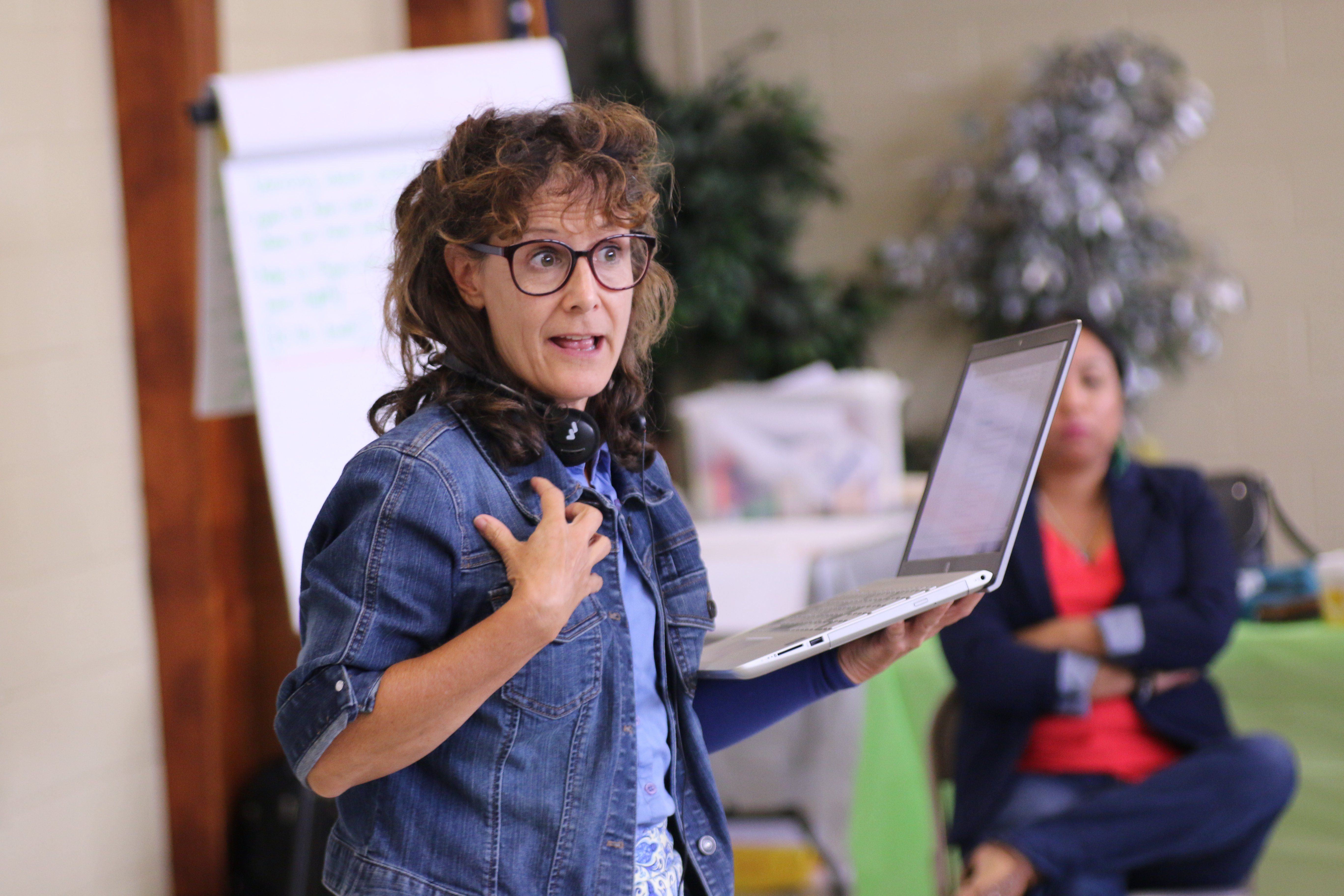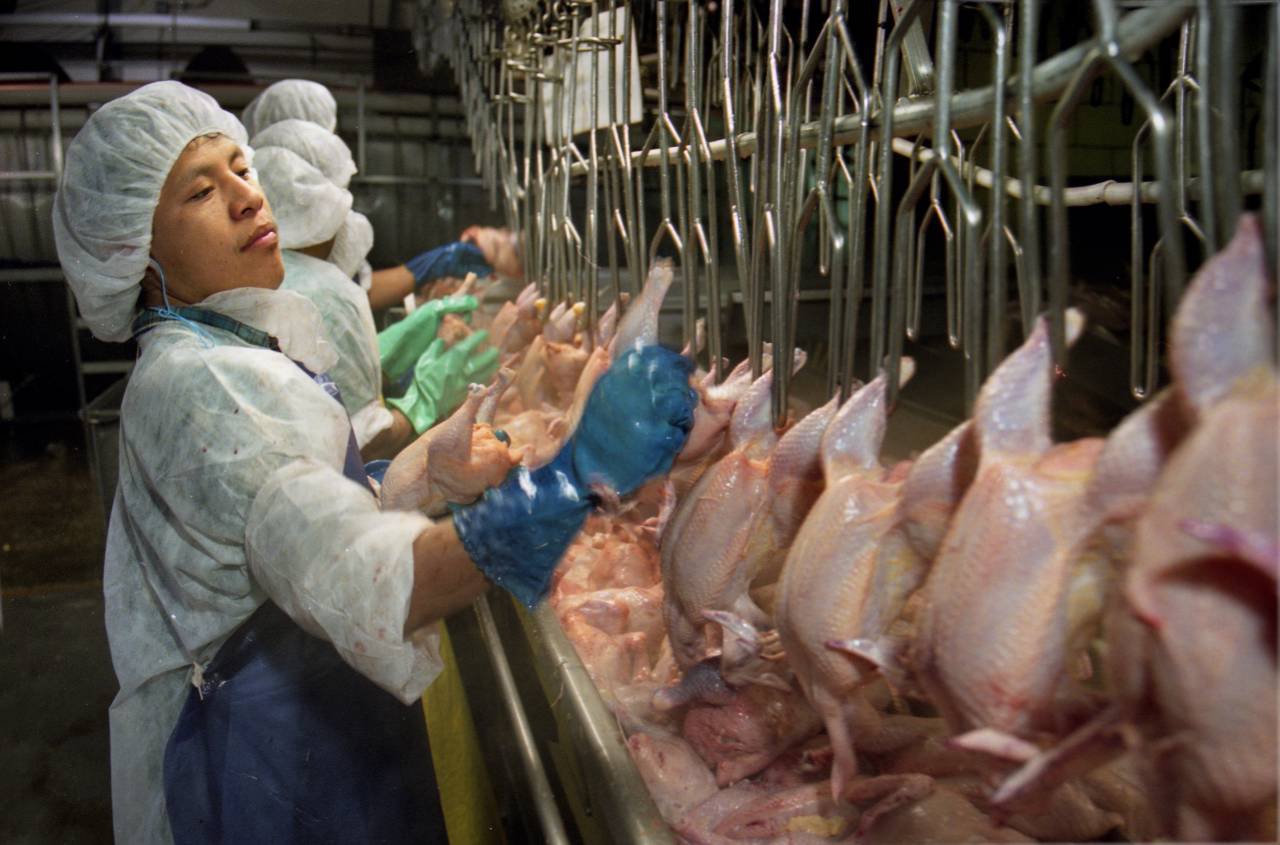During COVID-19, working in a poultry plant means putting your life at risk
For decades, the poultry industry in the US treated workers as disposable in the pursuit of cheap, plentiful chicken. And now, in the face of Covid-19, working in a poultry plant means literally putting your life on the line.
For several years, Oxfam has been working with a poultry worker justice coalition that includes worker centers, unions, advocates, experts, and academics.
Please reach out to our partners to find out how to get involved in advocating for safety and dignity:
- CATA – El Comité de Apoyo a los Trabajadores Agrícolas/The Farmworker Support Committee in Salisbury, Md.
- Centro de Derechos Laborales in Bryan, Texas
- Rebirth Inc. in Salisbury, Md.
- Western North Carolina Workers’ Center in Hickory, N.C.
In an effort to understand how the Covid-19 pandemic has been impacting the people who work in poultry processing plants, we conducted interviews with workers as well as experts. Here’s what we learned.
The value of a worker’s life: $100 and a 105-degree fever
Miska Jean Baptiste, a 44-year-old poultry plant worker in Maryland, didn’t realize he’d contracted Covid-19 in April, when he began to feel feverish. The plant checked his temperature, but his widow [who requested anonymity] says they didn’t inform him about his fever; instead, they gave him ice cream to reduce the reading. “They try to chill you down so you can go work,” she says.
This went on for four days; the plant kept it secret, she says, to prevent other workers from getting scared and leaving work. “There were people who tested positive, they didn’t tell anyone about it.”
When Baptiste finally went to the doctor, his temperature was 105 degrees. He was sent home, and three days later, he asked to go to the hospital, saying that he couldn’t breathe.
In the hospital, he went into a coma, and was put onto a ventilator; he passed away alone.
What followed was silence. The plant didn’t contact his widow or inform his coworkers. “The company said he was on vacation when he was in the hospital… they [didn’t] want people to know.”
After his widow told her story to the media, the company reached out. “They tell me they’re going to send an envelope.” She pauses. “It was a card, and $100 cash… I was so mad.”
Today, she is struggling to sustain her three children without a breadwinner.
“They need workers to work to make money, but they don’t care about people’s lives… If my husband—if they cared about his health, if they let him know about the fever—he’d still be living now. We’d be surviving.”
Companies and consumers need to take responsibility

Dr. Celeste Monforton is angry, but not surprised that the poultry industry is failing to protect workers from a deadly pandemic.
For years, Monforton, a lecturer in the Department of Health & Human Performance at Texas State University, has brought her public health expertise to the poultry worker justice coalition (in which Oxfam also participates). She also brought her deep concern for workers, and a passion for their rights.
She calls on the industry to accept responsibility for workers’ health, and their very lives. “COVID-19 presents a terrible risk to workers—but it also just reinforces and exacerbates the problems we have seen over many years. ... They continue to be treated as if they are disposable, just cogs in the wheel of production.”
Monforton puts two essential changes at the top of the list: social distancing on the line and paid sick leave.
As for sick leave, she doesn’t think there should be a debate. “We have a highly transmissible infectious disease that has killed more than 150,000 people just in the US. And we are still having conversations about paid sick leave,” she says. “It should be mandated.”
She notes that other industries have stepped up during the pandemic, and poultry needs to act now to save lives. “This pandemic is going to go on for a long time,” she says. "It’s not too late for the industry to start today and make the changes that need to take place—to explain why they are going to need to slow production and what that’s going to mean.”
“I hope they understand that we are people, not animals.”

Evelyn has seen a lot of pain in 13 years at a poultry plant in North Carolina. But this is the first time she’s watched as coworkers, one after another, have left the plant and not returned because of a deadly virus.
And it wasn’t until the deaths mounted that the company finally took some steps to protect them.
“When the pandemic began in March, they didn’t care about what was happening. ... They wouldn’t give us masks; we had to buy our own. They would yell of us for wearing them. They did not believe in the disease…”
After people started contracting the virus, and not showing up for work, the company started taking temperatures, providing hand sanitizer, and cleaning the bathroom more often. But they have not implemented social distancing or paid sick leave.
“We work shoulder-to-shoulder. There was no social distancing…..The plastic [dividers between workers] is not enough. … We can’t know if the colleague next to you is sick, or the one next to her.”
Evelyn, along with her daughter and hundreds of others in the plant, contracted the virus. While the company provides paid sick leave for two weeks, it is only granted upon proof of a positive test. She and others have struggled to get tested and produce the documentation.
Since she supports her family in Guatemala, Evelyn is determined to stay at the plant, and to work to improve conditions. “We might not want to work, but we have the need. This what we know how to do. I cannot go work elsewhere.”
The danger to her health, and to people in her community, has become overwhelming.
“We risk our lives to work for this company. ... I am afraid to go back, because I feel I will contract it again. This sickness is very dangerous.”
What needs to change?
As Monforton notes, this is the time for consumers to reflect on our place in the economic system. “We don’t really think about the people that put food on our table. We just go to the store and buy it. … This is a responsibility on us to take this moment and really reevaluate our behavior as consumers.”
We are asking the poultry industry to do the bare minimum to ensure worker safety. That means:
- Providing paid sick leave to workers that’s not contingent upon proof of positive Covid-19 test
- Implementing social distancing, especially on the processing line
- Communicating with workers and the community—reporting incidents of infection and death; providing safety information in appropriate languages

